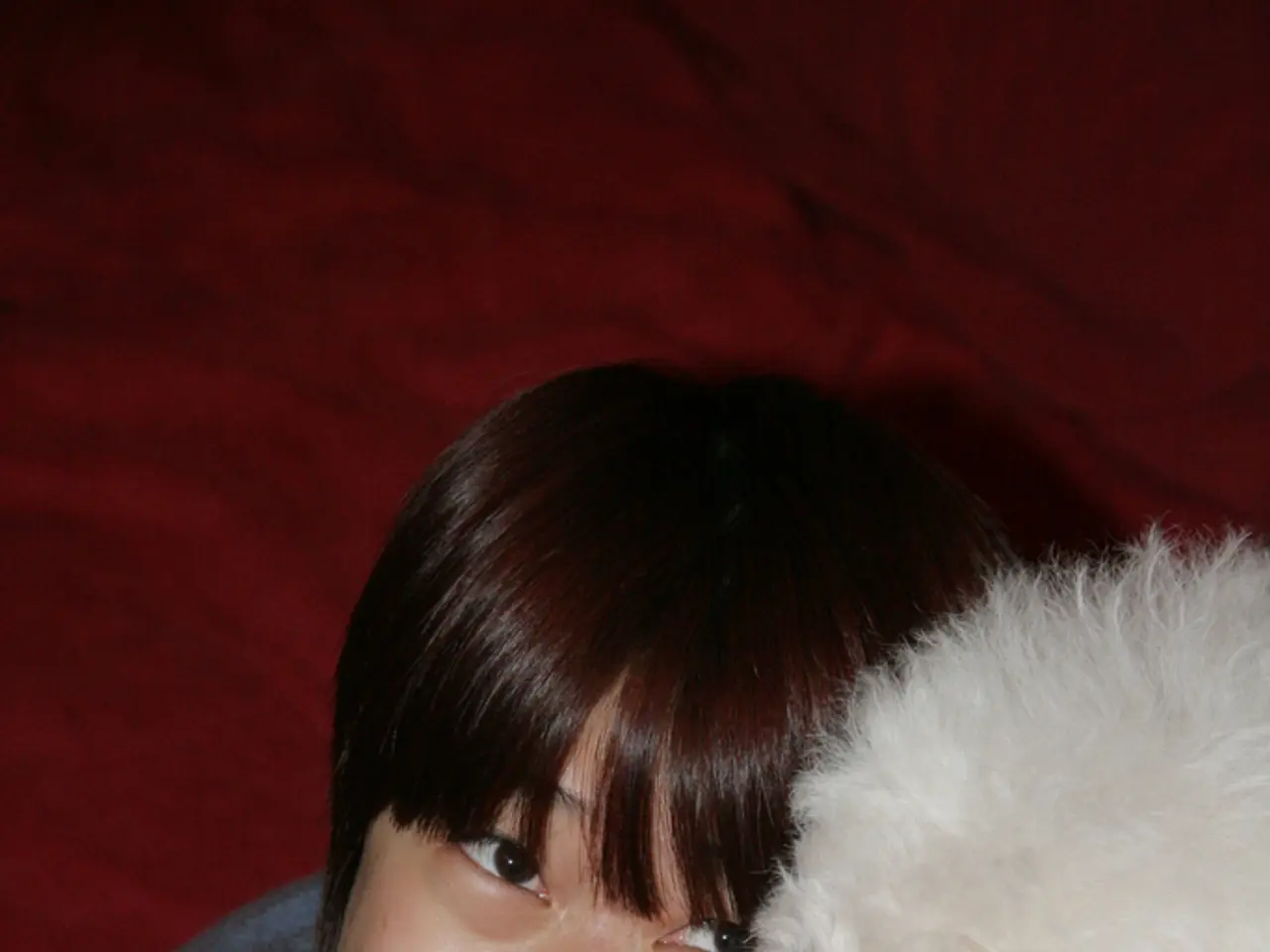Understanding Anxious Attachment in Relationships: Characteristics and Triggers
In the intricate world of romantic relationships, understanding and managing anxious attachment can be crucial. This attachment style, one of four unique styles outlined in the attachment theory, is characterised by feelings of unworthiness, fear of abandonment, and clingy behaviour.
Clients often seek advice on dating someone with anxious attachment, and for good reason. Anxious attachment can affect relationships by making individuals feel the need to make themselves indispensable, question if they are loved for themselves, mask true feelings due to fear of vulnerability, and cause conflict.
However, there is hope. Overcoming anxious attachment triggers involves a combination of personal growth, communication, and understanding attachment styles. Here are some key methods to help manage and heal from anxious attachment:
1. **Establish Healthy Boundaries:** Learning to discern what is your responsibility versus what isn't can help manage anxious attachment. This means not overemphasising your partner's needs at the expense of your own, allowing you to maintain emotional balance and reduce stress in the relationship.
2. **Diversify Your Energy and Interests:** Anxiously attached individuals often focus excessively on their partner. Diversifying your energy by engaging in personal interests, hobbies, and maintaining friendships can help reduce dependency on the partner and build trust in intimacy.
3. **Learn Each Other’s Attachment Styles:** Understanding both partners' attachment styles can foster a more compassionate and cooperative relationship. This involves reading about attachment styles together, exploring therapy options like the Gottman Method or Emotionally Focused Therapy (EFT), and practising self-regulation.
4. **Concentrate on Yourself:** Shifting focus from your partner to your own desires, hobbies, and personal growth is crucial. This can involve spending time alone, finding new hobbies, setting personal goals, and regularly meeting with friends who inspire you.
5. **Seek Professional Help:** Professional therapy, such as attachment-focused therapy, emotionally focused therapy (EFT), or interpersonal therapy (IPT), can be beneficial for those struggling to independently overcome anxious attachment patterns.
6. **Set Clear Communication and Boundaries:** In relationships with an avoidant partner, establishing clear communication and respecting both partners' needs can help balance the dynamic and create a more secure connection.
7. **Practice Self-Awareness and Acceptance:** Learning to be okay with being alone and recognising your own needs and triggers are essential steps towards healing and developing a secure attachment style.
Healing the inner child is a good place to start when trying to overcome anxious attachment. This involves acknowledging and reparenting the suppressed inner child on a spiritual level. Understanding what triggers anxious attachment, whether it be from childhood experiences or interactions with primary caregivers, can also help in relationships, particularly when dealing with someone who has anxious attachment.
It's important to avoid triggering statements when dating someone with anxious attachment. Instead, reassuring Open Hearts with statements like "It's alright, we'll get through this," "Let me give you a hug, it will be okay," "I'm not scared of your feelings, I want to listen to you," and "Another common, triggering phrase that Open Hearts hate to hear is 'You're overreacting.' Instead, what an Open Heart needs to hear is: 'Even if I can't understand why you're feeling this way, I know what it's like to feel overwhelmed. How can I support you?'"
By implementing these approaches, individuals can work towards forming more secure and fulfilling relationships.
- Engaging in self-growth and setting clearly defined boundaries are vital steps to managing anxious attachment in romantic relationships.
- Learning about one's own attachment style and that of their partner through reading or therapy can foster mutual understanding and cooperation in a relationship.
- Diversifying personal interests and maintaining friendships helps to reduce dependency on a partner and build trust in intimacy.
- Seeking professional help, such as attachment-focused therapy or emotionally focused therapy (EFT), can be beneficial for those struggling to overcome anxious attachment patterns.
- Acknowledging and addressing childhood experiences that may have contributed to anxious attachment can help individuals heal on a spiritual level.
- Establishing clear communication and respecting both partners' needs can help create a secure connection in relationships, particularly when one has an avoidant partner.
- Practicing self-awareness, self-acceptance, and understanding one's own needs and triggers are essential steps towards healing and developing a secure attachment style.
- Art, play, and other creative activities can provide a healthy outlet for emotions and help individuals work through their attachment issues.
- Health-and-wellness practices, such as exercise, meditation, and proper nutrition, can support mental health and overall well-being, which are crucial aspects of personal growth.
- Engaging in education and self-development projects can equip individuals with the knowledge and skills needed to build stronger, more fulfilling relationships, and grow beyond their anxious attachment style.






